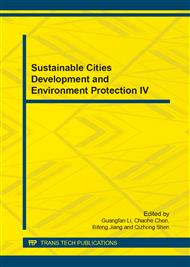p.1250
p.1255
p.1262
p.1266
p.1270
p.1276
p.1281
p.1286
p.1291
The Indirect Tensile Strength of Palm Oil Fuel Ash (POFA) Modified Asphaltic Concrete
Abstract:
The amount and nature of filler in asphaltic concrete mixes significantly affect its design and performance. The use of Palm oil fuel ash (POFA) as filler in asphaltic concrete has been studied with varying degree of success, this study therefore, evaluates the effect of POFA on the indirect tensile strength of asphaltic concrete AC 14. POFA was grained and passed through 75 μm sieve; a number of trial mixes were prepared using the Marshal Mix design procedure with 5% POFA to arrive at asphalt concrete mixtures that fulfill the Marshal criteria. The effects of POFA on stability, flow, stiffness and indirect tensile strength of asphaltic concrete (AC14) mixtures at their respective optimum binder content were evaluated. The results show that Marshall stability, flow, stiffness and indirect tensile strength values generally improved in the POFA modified mix compared with the control. POFA modified sample shows 16% improvement on the indirect tensile strength compared to the control.
Info:
Periodical:
Pages:
1270-1275
Citation:
Online since:
July 2014
Price:
Сopyright:
© 2014 Trans Tech Publications Ltd. All Rights Reserved
Share:
Citation:


